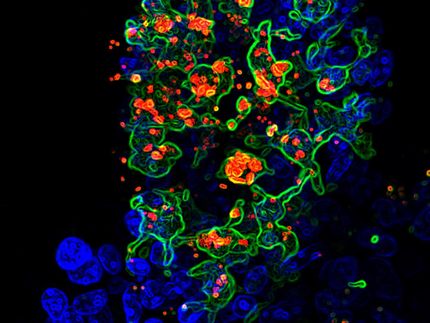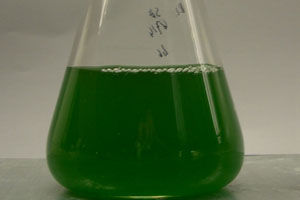Soil bacteria plant bodyguards against fungal infections
The 'plant microbiome' in action
With up to 33,000 ‘taxa’, plant roots are home to an unprecedentedly large diversity of bacteria. Some of these bacteria can function as a type of bodyguard for plants, protecting them against infection by harmful fungi. This is the result of research carried out by Wageningen UR, Utrecht University, the IRS in Bergen op Zoom and the American Lawrence Berkeley National Lab, published in Science. As these protective bacteria promote plant growth and health, knowledge about the underlying mechanisms is important for the sustainable production of food and green raw materials.
“We have made a first step in mapping the genetic and functional diversity of the microflora of plants, also referred to as the ‘plant microbiome’,” says Jos Raaijmakers, researcher-lecturer at Wageningen University and coordinator of the project. “With the aid of new DNA technologies, we have discovered that an unprecedentedly large number of bacteria species live on plant roots. By using natural disease-suppressive soils, in which specific plant pathogens do not or only rarely cause disease due to the activity of other soil microorganisms, we were able to specifically identify certain groups of bacteria that protect plants against pathogenic soil fungi. To what extent plants actively recruit these 'bodyguards' is as yet unknown and currently being studied.”
The scientists used so-called PhyloChips, DNA microarrays that can be used to analyse the genetic diversity and relative densities of bacteria in air, water, food or soil samples. In their research, this DNA chip was used to determine the bacterial diversity and their relative abundance in the rhizosphere, the nutrient-rich zone surrounding the plant roots. They discovered that the rhizosphere houses a wide range of bacteria, with approximately 33,000 ‘operational taxonomic units’ (OTUs) found in less than a gram of rhizosphere soil. Groups of proteobacteria, Firmicutes and Actinobacteria were especially more enriched in disease-suppressive soils. This was the first indication that these groups may function as 'bodyguards' against infections.
For one of these groups, the Proteobacteria, the scientists subsequently showed that they can protect plants against infections via the production of a specific peptide that inhibits fungal growth.
Organizations
Other news from the department science

Get the life science industry in your inbox
By submitting this form you agree that LUMITOS AG will send you the newsletter(s) selected above by email. Your data will not be passed on to third parties. Your data will be stored and processed in accordance with our data protection regulations. LUMITOS may contact you by email for the purpose of advertising or market and opinion surveys. You can revoke your consent at any time without giving reasons to LUMITOS AG, Ernst-Augustin-Str. 2, 12489 Berlin, Germany or by e-mail at revoke@lumitos.com with effect for the future. In addition, each email contains a link to unsubscribe from the corresponding newsletter.



















































